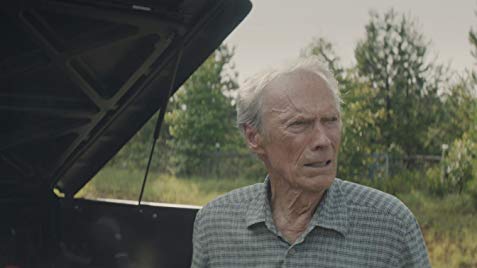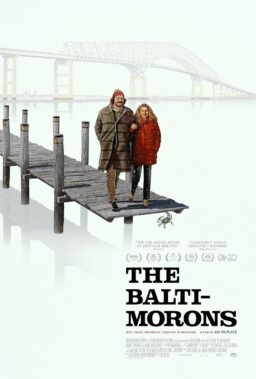Clint Eastwood is pushing 90, and his audience will still turn out for his movies. Go to any multiplex in America on the weekend a new Clint Eastwood movie opens and you’re going to see crowds of people—especially if he’s in it as well as directing it. I’ll never forget going to “Gran Torino” in New York City and seeing a van pull up and let out a bunch of senior citizens from a retirement home. They’d chartered a vehicle to see Clint.
The appeal of Eastwood the movie star has changed over the years. From roughly his 50s through his 70s, he had a wish fulfillment sort of appeal, where you got to see this wisecracking, leather-headed brute beating the crap out of guys one-third his age, and dealing with relationship problems with women two decades his junior, and working in professions that normally would phase out a man of his vintage, like astronaut or investigative reporter. It wasn’t until “Gran Torino” that Eastwood played a guy who, aside from his ability to pummel strong young men, was indistinguishable from snarling coots who can be found in many American neighborhoods. In retrospect, that movie really seems like a harbinger of Trump’s America, except the Eastwood character learns to love people who don’t have anything racially or culturally in common with him, and heads in a direction that’s more New Testament than Old.
“The Mule” is a more radical departure. Eastwood plays Earl Stone, a Korean war veteran and horticulturalist whose business is destroyed by the internet. In addition to his anxiety over his ruined business, he is dealing with a lot of guilt from his inability to take care of his family, specifically his ex-wife Mary (Dianne Wiest) and his daughter Iris (Alison Eastwood.) He decides to become a mule for a Mexican drug cartel. The thinking is that he will be beyond suspicion because he’s an old white guy. This theory is proved correct: Earl becomes the single most successful drug mule in the history of the organization, and with the money he’s making, he buys himself a new truck, pays off his debts, pays for the local veterans of foreign wars post to be renovated, pays for his granddaughter’s college and her wedding, and generally buys his groove back.
Part of the fun of the movie is seeing a guy who’s been essentially pushed out of the spotlight of American life living it up like a movie star. He’s flashing lots of cash, he’s hiring two call girls at a truck stop to entertain himself, he wanders into parties with much younger people and acts like James Caan at the Playboy Mansion in the ’80s. I guess you could say that this is also a form of wish fulfillment for Clint Eastwood’s constituency. But there’s something much sadder going on here, which is the sight of a guy reckoning with his failures after running from them for most of his adult life.
This is a theme in a lot of Eastwood’s movies: everything from “Honkytonk Man” and “Bronco Billy” up through “Gran Torino” and “The Mule,” and even “The Bridges of Madison County,” in its way. In the Eastwood movie, you have this very handsome, charismatic man who behaves like an entitled movie star, even if he’s married and has kids and a house and responsibilities. But the bill comes due in the form of losing the people he loves, and he has to live in the wreckage of his mistakes. at some point in a Clint Eastwood movie, the bill always comes due. That’s probably the only thing that keeps him from being the intellectual’s answer to someone like Steven Seagal—that sense of futility and waste runs that underneath all the heroics of his movies.
That’s true whether the character is a surrogate Eastwood, like Bradley Cooper in “American Sniper,” who keeps re-enlisting to go fight in Iraq because he is an incompetent and uninterested husband and father. In contrast to this perception of Eastwood being this thoughtless, Republican-pandering director, I think a lot of his recent movies have been suffused with a tragic awareness of what has been lost by embracing the more toxic aspects of America masculinity, and it’s expressed in a way that is sardonic and subtle.
I’ll never forget watching “American Sniper” at the Alpine Cinema in Bay Ridge, until very recently one of the few solidly Republican neighborhoods in the five boroughs of New York City. There’s a moment in the film where Chris Kyle is at a bar after returning, and his wife calls the bar to ask where he is, and he says he’ll be home soon, and there’s a cut and you see white titles on a black screen that says “fourth tour.” Our audience burst out laughing, because it was funny in a sad way. They got that. A lot of critics did not.
“The Mule” is also funny in a sad way, because Eastwood has been very slow to allow himself to be portrayed as physically vulnerable up till now, and he seems to be making up for lost time, making Earl as puttering and frail as a real-life man in his ’80s who wasn’t living a movie star’s life. Eastwood has always been good with emotional vulnerability, even though he’s playing toxic tough guys and giving minimalist performances that are a bit like studying an Easter Island statue to see if it will blink. He’s always aware of how ill-equipped his heroes are to function in a society with other human beings. But physically, it was still as if he was made out of the iron they used to make battleships. Eastwood played characters who could kill six guys before they got off a single shot, or beat up four men with a piece of hickory. Their incredible badassery perfumed the stink of regret.
Not so “The Mule.” This is the only Eastwood film I can think of where, when people threaten him with physical harm, he looks instinctively scared. I think he is finally leaning into the fact that he is an old man. It’s certainly the only Eastwood movie I can think of where I spent the entire movie afraid that he was going to injure himself, that he was going to fall down a flight of steps and fracture his hip. The story of that film is the story of a guy trying to set things right, to the extent that he can, before he dies. It’s a long, shaggy, repetitive movie, as lumpy as porridge. I would never describe it as “great.” But it has stuck with me. It might be his most honest movie, in one way: he’s facing the one enemy a Clint Eastwood hero can’t beat, and letting us see how scared he is.












